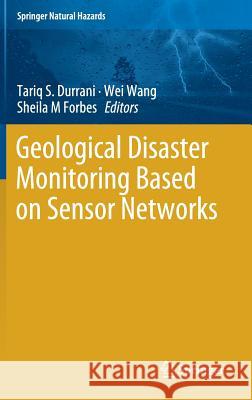Geological Disaster Monitoring Based on Sensor Networks » książka
topmenu
Geological Disaster Monitoring Based on Sensor Networks
ISBN-13: 9789811309915 / Angielski / Twarda / 2018 / 214 str.
Kategorie:
Kategorie BISAC:
Wydawca:
Springer
Seria wydawnicza:
Język:
Angielski
ISBN-13:
9789811309915
Rok wydania:
2018
Wydanie:
2019
Ilość stron:
214
Waga:
0.50 kg
Wymiary:
23.5 x 15.5
Oprawa:
Twarda
Wolumenów:
01
Dodatkowe informacje:
Wydanie ilustrowane











